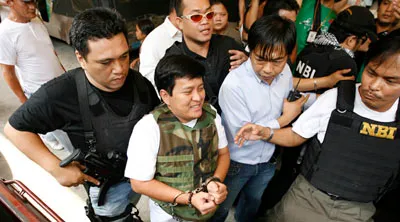January 1 marks the 40th day after the brutal killings of 57 people, including 31 journalists and media workers, in the Philippine province of Maguindanao. In the Philippine tradition, the day will be considered the “end of mourning.” But the pursuit of a just and thorough prosecution is only beginning, noted CPJ board member Sheila Coronel, who said the “effort will require an unprecedented level of resources, commitment, and collaboration.” Several of us at CPJ got an overnight memo from Coronel, who has returned to her hometown, Manila, to speak with advocates working on the case.
Coronel, director of the Stabile Center for Investigative Journalism at the Columbia University Graduate School of Journalism, was one of the foremost investigative reporters in the Philippines. She believes justice can be achieved, but she is cautious. Let me summarize much of what she told us in her memo—I’ll cite her very liberally.
She warned us that “journalist and lawyer groups in the Philippines have not dealt with something on this scale before: 57 victims, several sets of lawsuits involving potentially scores of litigants, and accused murderers who are not only powerful, wealthy and well-armed but also have a well-funded and sophisticated defense team.
“No single entity—probably not even the Philippine Department of Justice—has the resources and the capacity to adequately prosecute the Maguindanao cases on its own,” Coronel went on to say. “The effort will require an unprecedented level of resources, commitment and collaboration. Trying the cases will take at least two years: The groups need to be in this for the long haul.”
Given all the years of political turmoil before and after the Marcos era, the Philippines is blessed with an active civil society, but we should expect this to be a complex process. Coronel counted eight different media and legal groups and individual lawyers pursuing five different types of lawsuits. There has been some consolidation of their efforts, but there will likely be more to come. She said that should be a priority in the coming weeks.
Another important issue: There is a pressing need for coordination with victims’ families. The political reality in Maguindanao is that unless the families are briefed and participate actively in the cases, they could succumb to threats from the members of the Ampatuan clan who have been accused in the killings. Or that impoverished families who lost their main income providers might be paid off by those who are implicated in the killings.
Underlying this are several concerns involving funding and resources:
Costs of litigation: Those costs include filing fees and transportation for lawyers, witnesses, and families attending hearings, which have been moved to Manila from central Mindanao. Legal teams also need to beef up staffing for the litigation that lies ahead.
Support for victim families: Outreach and humanitarian assistance has helped the families through the difficult grieving period and has sustained their confidence that justice is possible. But that will have to be maintained throughout the long legal process. Coronel noted the need to provide resources so families are kept informed about the progress of cases.
Support for advocacy and documentation: The killings are still at the center of media attention in the Philippines, but there is little coverage outside the country now. Media and civil society organizations will be monitoring the investigation and conducting independent research for some time to come. They will need ongoing support even as public attention lags.
Support for witness protection: The government’s Witness Protection Program has provided financial and logistical support for some witnesses and their families. As the trials progress, civil society groups will need to provide additional support, such as airfare, to enable witnesses not in the program to attend hearings. In addition, some witnesses are reluctant to accept government-sponsored protection. In those cases, CPJ and other media support groups will support relocation.
International support: International observers, including possibly U.N. special rapporteurs for human rights and free expression, will be needed to monitor the trials. The European Union has been supportive of efforts to get justice for the victims. “For sure,” Coronel said, “international attention during the trial is crucial to ensuring that justice is done.”
Forensic expertise: The site of the massacre has been overrun over by police and relatives searching for bodies. Forensic experts have been frustrated by the contamination or loss of important evidence. Raquel Fortun, a forensic pathologist, is preparing a report and, from there, additional needs will be determined. “So far, the lawyers I spoke with, including those not involved in the Ampatuan cases, have faith in Fortun and she is seen as highly credible, even by the government,” Coronel said.
Stress relief: Coronel said lawyers, supporters, and staff exposed to the gruesome details of the case need counseling and therapy. Some have already shown signs of stress.
CPJ’s Journalist Assistance program and Asia regional staff are working closely with our colleagues in Manila and around the world to help the families of those killed rebuild their lives and to help bring the perpetrators to justice.
One note for the record: The Ampatuan clan has professed innocence in the killings. On Wednesday, the Philippine Daily Inquirer quoted a son of Maguindanao Gov. Andal Ampatuan Sr. Said the Inquirer: “Sajid Islam Ampatuan claims the multiple murder charges … are politically motivated to dislodge their clan from power.”
